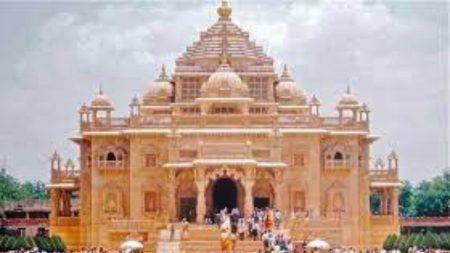The World Health Organization (WHO) will hold a summit on traditional medicine in Gandhinagar, Gujarat in India next week.
Traditional Medicine: Medicine for All
The Traditional Medicine Global Summit by WHO will be held in Gandhinagar, Gujarat. Collaborating with the Government of India, this first-of-its-kind summit will take place on 17-18 August 2024. It aims to delve into the significance of traditional, complementary, and integrative medicine in order to tackle critical health issues and propel advancements in worldwide health and sustainable development.
Prominent figures attending the event will encompass the WHO Director-General, along with Regional Directors, G20 health ministers, and distinguished representatives from countries spanning the global health body’s six geographical regions. Notable participation will extend to scientists, traditional medicine practitioners, healthcare professionals, and members of various civil society organizations.

Throughout the summit, discussions will aim to revolve around the potential of traditional medicine in offering solutions to pressing health challenges and fostering progress in global health endeavors. By bringing together a diverse array of stakeholders, the event aims to facilitate insightful conversations, sharing of knowledge, and collaborative strategies to harness the benefits of traditional medicine alongside contemporary healthcare approaches.
Central to the summit’s agenda is the pursuit of comprehensive health coverage for all people across nations. The gathering will deliberate strategies for amplifying scientific progress and unlocking the potential of evidence-based knowledge in harnessing traditional medicine for the betterment of global well-being. Distinguished experts and researchers will spearhead conversations encompassing crucial topics such as research methodologies, policy formulation, data management, technological innovation, and the interplay between biodiversity, equity, and Indigenous wisdom.
One of the summit’s highlights is the unveiling of insights from WHO‘s third global survey on traditional medicine. This comprehensive survey delves into financing, Indigenous Peoples’ health, quality assurance, traditional knowledge, biodiversity, trade, and patient safety. These findings will inform WHO’s updated traditional medicine strategy, serving as a cornerstone for policy development and strategic planning. The event will also highlight the role of interdependence between elements of biodiversity, indigenous knowledge, and human health in traditional medicine.
A substantial portion of the summit’s discourse will revolve around policy, regulatory landscapes, data collection structures, educational programs, training, accreditation, and practitioner regulation. These discussions hold immense potential in enhancing patient safety, minimizing harm, and optimizing the delivery of traditional medicine services.
Why Traditional Medicine?
Traditional medicine has already established its significance in diverse parts of the world, embedded within the cultural fabric and contributing to the vitality of numerous communities. In certain regions, it forms a substantial part of the health sector’s economic landscape and serves as the sole accessible healthcare option for countless individuals.
The advancement of scientific inquiry in traditional medicine remains a key imperative. From ethnopharmacology to reverse pharmacology, innovative research methodologies hold promise in uncovering safe and effective medicinal remedies. The application of cutting-edge technologies, including genomics, diagnostics, and artificial intelligence, stands to unravel new dimensions of traditional medicine’s potential. However, amidst the global surge in traditional medicine use, ensuring safety, efficacy, and quality control for products and therapies remains an ongoing priority, says WHO.
In this convergence of minds, the Traditional Medicine Global Summit anticipates fostering innovative insights and actionable outcomes that can contribute to a more comprehensive and effective approach to global health and sustainable development with the help of indigenous traditional medicinal knowledge. The summit represents a pivotal milestone in fostering dialogue, collaboration, and evidence-based insights to amplify the role of traditional medicine in global healthcare systems. By uniting diverse stakeholders, the summit endeavors to advance scientific knowledge, enhance patient safety, and pave the way for holistic and sustainable healthcare solutions.













